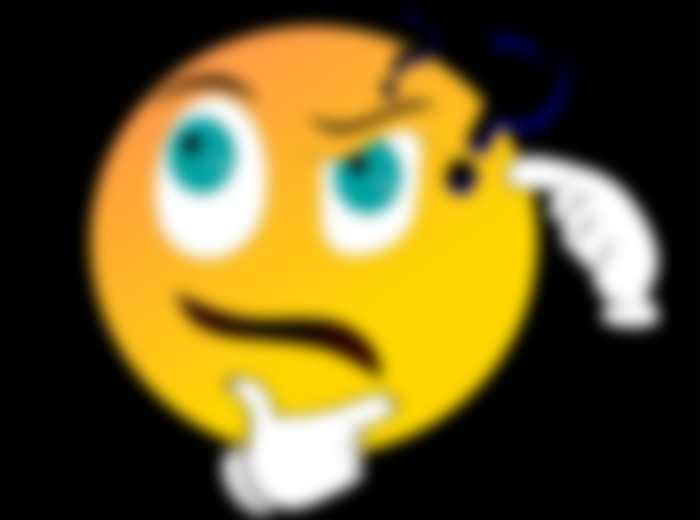Quizzes & Puzzles 48
The last couple of weeks of this series, I have received more response on an average, in form of comments with answers, than I had before. Perhaps my questions have not been as difficult as before, I don't know. Anyway, I hope this trend will continue.
I am also glad to see that it is obvious that most of you who have been answering, and that goes for the whole series so far, have been doing so without using Google. That makes this so much more fun for both you and me.
I know that many of my questions are difficult, so don't be sad if you cannot answer right to everything; nobody has done that so far. Read the answers and see it as a fun way of acquiring new knowledge instead.
Now, some new problems with which to exercise the brain. But first a look at answers and solutions to Quizzes & Puzzles 47. New problems below the image (cartoon).
Answer to Quiz 47:1
Which is largest, a 1 carat ruby or a 1 carat diamond?
@Sylv_Sylv gave us the correct answer a diamond.
The diamond is larger because the ruby is heavier.
Answer to Quiz 47:2
Shakespeare's three witches are famous characters in one of his theatre plays – which one?
It was in “Macbeth”, as @fantagira knew. It is likely, though, that Shakespeare has built on older folklore and mythology, possibly the Three Fates of Antique lore (or the Moirae). Anyway, his three witches are prophetic and predicted Macbeth's destiny.
Answer to Quiz 47:3
Creation and rock band formed in 1967.
Genesis. The rock band, Genesis, was most interesting and influential during the 1970s – after that they became more streamlined after commercial ideals and lost some of their specific characteristics.
Answer to Quiz 47:4
Emilio “El Indio” Fernández was the model for a trophy awarded yearly since 1929. What?
The Oscar statue.
Answer to Quiz 47:5
In J.R.R. Tolkien's literary world, who are referred to as the "First" and "Second" Children of Illúvatar?
Elves and mankind respectively. This piece of information is found in Tolkien's book “Silmarillon”.
Answer to Quiz 47:6
In English, one says:
I was
You were
He/she/it was
We were
You (plural) were
They were
However, there is an exception to this rule, when it should always be “were”. Can you give an example of a correct sentence containing “... I were ...”, and explain why it should be in that way?
@Danika gave a correct examples: “If I were you, I would rather appreciate the questions” and “She wished she were a stewardess.” I have been considering @Danika's explanation, which I first saw as incomplete, but I now tend to say it is right in essence. (See the comment section). Let me say it like this: If something is not certain, it should always be “were”. It happens most clearly if the clause expresses a wish or if it is conditional (contains explicit or implicit “if”). Grammatically, it is called that “to be” is in the subjunctive. This practice is gradually disappearing from modern English. It is quite common to find native English speakers (and writers) who have no idea about it. Still it gives a good impression of style and education when it is observed.
Answer to Quiz 47:7
An animal with a horse mother and a donkey father, is called a mule. But what is it called if it has a horse father and a donkey mother?
It's called a hinny. @Sylv_Sylv knew this. Hinnies are less common than mules.

And now some new exercises for brain & memory...
Quiz 48:1
In which way does the pupil of a cat differ from that of a human?
Quiz 48:2
If we talk about Ormuzd and Ahriman, which religion are we discussing then?
Quiz 48:3
Cobalt is used as a pigment in artist's colours, which colour does it give?
Red?
Yellow?
Blue?
Violet?
Black?
White?
Quiz 48:4
What did Popeye eat to become strong?
Quiz 48:5
A writer, in an indirect sense a saintly man, half Chinese, a fact that for a long time blocked him from getting a permanent residence permit in the country where he actually resided. His literary creations belong entirely to the popular culture. It is in no way deep or difficult literature, and perhaps it is more known from a television series than from books. Who was he?
Quiz 48:6
Who was the philosopher who became the teacher of Alexander the Great?
You'll find answers and solutions in the next “Quizzes & Puzzles”.
Quizzes & Puzzles has its own label in my Index, where all issues of the series can be found.
In my INDEX, you can find all my writings on Read.Cash, sorted by topic.
Copyright © 2022 Meleonymica/Mictorrani. All Rights Reserved
(Cartoon by Christian Dorn/Pixabay, CC0/Public Domain.)

Quiz 48.3 Cobalt gives blue colour
Quiz 48.6 Plato?